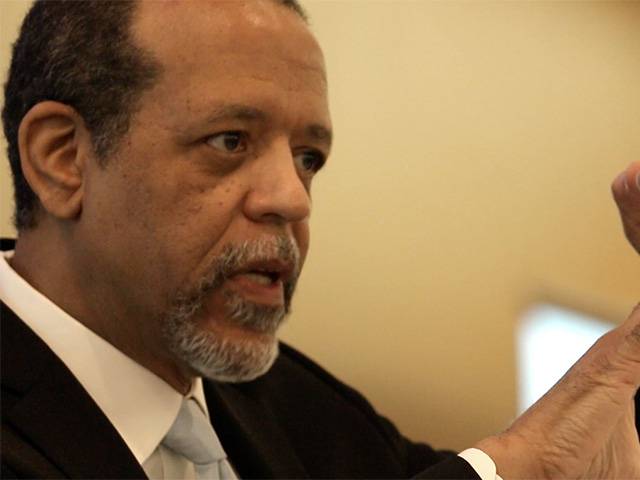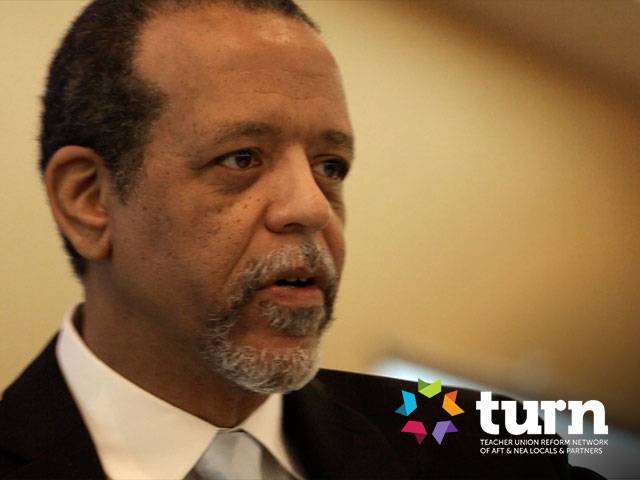Video 3 Author and Harvard professor Ron Ferguson discusses the movement that is taking hold with increasing urgency to close the achievement gap and ensure excellence with equity for all children throughout the nation.
He shares how stakeholders - including parents, teachers, peers, employers, and the community - each play a role in this movement by leveraging a variety of goals, strategies, institutions, policies, programs and projects, and principles and practices.
Video Transcript
[00:00:07] I think there really is a movement in the nation now. There are a lot of people who are feeling urgency and who are stepping up. I get a lot of calls from folks that want advice or want me to help publicize what they're doing or all kinds of connections. You've got people who are making movies, starting organizations. The collective impact stuff is going off. You've got parents stepping up voluntarily trying to put together summer programs for kids. Just lots of stuff. People understand that this is a really important moment. We're kind of building the foundation for this century in terms of how our kids are going to turn out. [00:00:40] So, we think about the elements of the movement. The movement is everybody who feels some sense of urgency to be involved to do something, right? And inside the movement, there are lots of goals, and we're never going to agree on the goals, but that's good because people then spread themselves across the work. They'll try to target and be engaged to help with whatever goal they think is most important. We don't end up all piled up at the same point. Okay. [00:01:03] Some people think that the early childhood stuff, the zero to three period, is the most important, and their goal is to make sure that parents know what to do to optimize development during that zero to three period. Other people think that school readiness is really important, so that three to five period, you've got to get the kids ready for their social lives, and they have some of the basic skills that they need to step into kindergarten and do well. Other people think that that K to three period is really important because that's the time that you're really learning to read and learning basic math so that later you can read to learn, right? [00:01:39] Other people think that that 9 to 14 period is the most important time because that's the time you really step into your sense of identity and who you are and how you fit into the world, and you're learning to manage your peer culture and peer dynamics and so on. Other folks think it's 14 to 18 because that's that high school period where you're starting to envision who you're going to be as an adult and choose some kind of a trajectory toward a four-year college degree or other kinds of vocations and just figuring out really...really getting ready to step into the world. [00:02:10] And other folks think that, no, it's the 18 to 22 because that's when you really step across that threshold and move from being a child to being an adult, and we need things to go really well. And a lot of kids get lost during that period because we've got pretty good pathways for the kids who go into four-year college degrees, but if you're not going for a four-year degree, it's a total mess. You got some good community colleges, but high school counseling does not do much career counseling, it doesn't give you much guidance. There are kids, 11th, 12th graders that never heard of financial aid. They can't go to college because they don't have any money. [00:02:45] Okay. And so there's a real messy period that we need to fix as a nation. We need to take responsibilities. There's a report on the bottom. When I mentioned the website, webpage, the agi.harvard.edu, if you go to the bottom of that page, there's a report, Creating Pathways to Prosperity. That's a report on the two-day conference on what the system needs to look like to fix this transition from school to career, there. I invite you to look at it. I put a lot of work into that report. Okay. And there are other related things that you can find. [00:03:18] And so, and then some people might say, "No, it's that 22 to 30." I got 2 kids in the 22 to 30 right now, actually 3. One who's 22, one is 27, and 28. Two of them are in New York. One's in commercial real estate industry trying to get his footing. You know, you got to find...he's in commercial real estate sales, and he has no network. And so trying to develop the networks, and people don't share their leads, and people lie all the time. He's a pretty honest, ethical guy, and he's not comfortable with the fact that it's not very ethical. He said, "Everybody lies." You know, people mislead customers about the condition of the property and so on. And so trying to find your way of fitting into the adult world, it happens. [00:04:05] So all these periods have important developmental work to do. People can have their goal associated with any of them, and it's nice that we spread our efforts across that work because there really is work to do during all of those periods. [00:04:15] Strategies for any particular goal, you need a recipe, a strategy for how you're going to do it. If you don't have a strategy, you're dead in the water. You know what you'd like to do, but you're kind of dead in the water with the already getting it done. [00:04:29] Then institutions are ones that actually carry out the strategies. If our schools as institutions, collective impact organizations as institutions, employers as institutions. [00:04:40] And then you get down to policies, the fifth line down. People often want to start with policy. What new policies do we need? In service to what? What are the goals you're trying to achieve with your policies? What are the strategies you want your policies to support? What are the institutions that are actually going to carry and monitor and manage the resources that are going to be used in here? And then the work actually takes places in the context of programs and projects, and a school is basically an organization that runs a lot of programs. A school year in a class is like a yearlong program, and so, you know, projects. [00:05:14] And then inside the programs and projects, you've got principles and practices, which is what you want the work to actually look like on the ground. What are the principles? What are the practices? [00:05:25] So these...every line of this, if we're going to really think it all through, the things that we thought through on each of those lines. All right. And then we've got all of these institutions. And so we start with parents and home life. So and all these things, you'll see the little upside-down triangle on each of these little circles I'm using. That upside-down triangle is the one thing we just looked at. And so even in a home, you've got all this stuff. We've got...a family has a movement to raise these kids, so to speak, and everybody's kind of doing their piece in it, their goals for child-rearing even in the family, their strategies, their family policies. Our policy is we don't spend money for that in this household, or you've got to be in here by 9:00 in the evening, and you're spend an hour...you're going to allocate an hour of your time resource toward getting your homework done. Okay, their policies, so you can use the same ideas to talk about any of the institutions. [00:06:25] And so with regard to parents, there's parenting, and there's parent engagement. Parenting is what families do with the door closed. It's not about the relationship to the teacher at school. It's about how I talk to my child at home. It's about what I do with my child when I spend time with my child, right? Schools might be able to transfer some insights on that, but you have to be careful because parents only will receive this from certain people. Okay. The message matters, and the style of communication as a message is delivered matters, but as I'll say more about in a second, parenting really matters. That's where the achievement gaps start, okay? Gaps are in place by the age of two, long before school starts. [00:07:15] Then you've got the teachers, and I'll come back to the teachers and the teaching piece in a minute. [00:07:19] Then you've got the peer dynamics. Okay, so for each one of these things, there are various issues in the ecological setting, right? And then you've got...and for the peer dynamics, you have problems in kindergarten growing up. Kindergarten, first and second grade children for whom learning is difficult are twice as likely to report being teased in school, or very early on you've got these issues. For the older kids, there's a lot of hiding effort and reducing effort due to fear of how peers might react if they strived openly in school, because they're afraid to openly aspire to high achievement. [00:07:59] We have the parent piece, then we have the teacher's piece, then we have the peer piece and now employers. We need employers to help us orient our kids to life, images of possible selves. We also need them to help design the curriculum, help make it more relevant, right? And then for the whole community, programmatic supports for families and youth and places to connect and belong and contribute. You put all that together, and you've got a picture that looks like that. If you think of what we're trying to do in our communities, we're trying to put that whole picture together.









